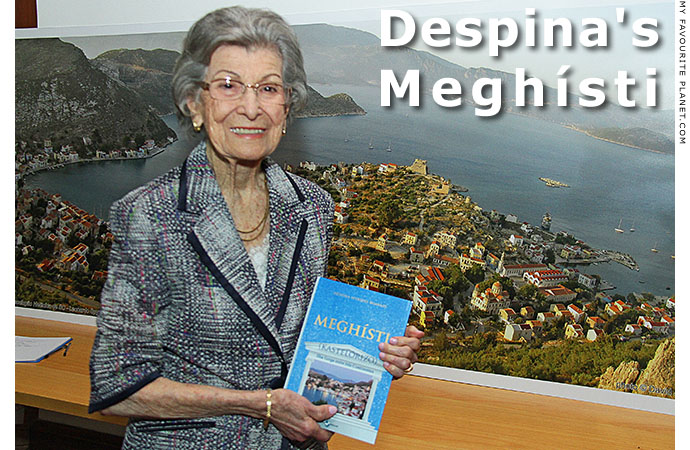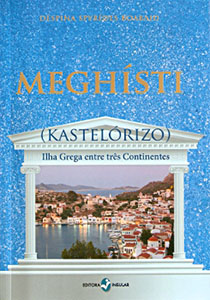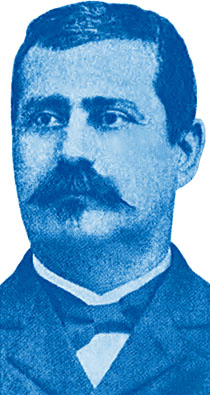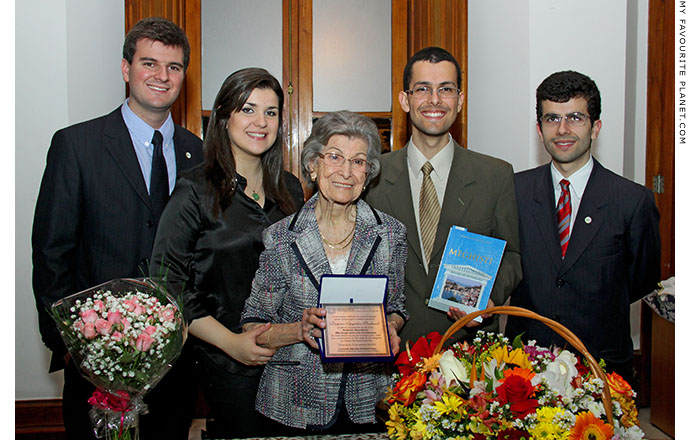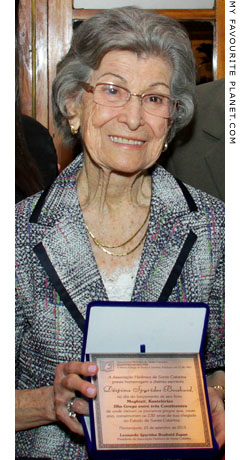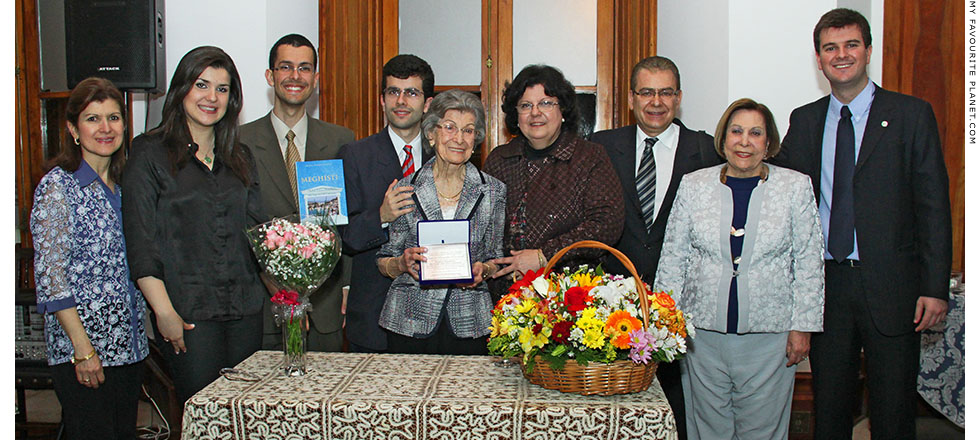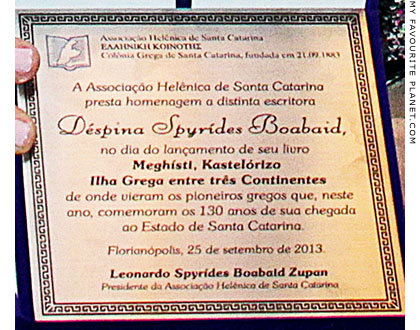Florianópolis, Santa Catarina state, Brazil
Wednesday, 25 September 2013
Mrs. Déspina Spyrídes Boabaid launched her book Meghísti (Kastelórizo): Ilha Grega entre três Continentes (Meghísti (Kastellorizo): Greek Island between three continents) this evening in the Museu Histórico, Florianópolis, the capital of the southern Brazilian state Santa Catarina.
The richly illustrated book tells the history of this tiny Greek island, details its notable features, buildings and monuments, and includes accounts of the lives, customs and traditions of its inhabitants. It also deals with the various phases of Greek emigration to Brazil.
Déspina is renowned for her distinguished career as a lawyer, teacher, professor, author of poetry and prose, and for her encouragement of the arts, culture and education. Brazilian reviewers of her latest book have praised particularly the precision and beauty of the language in which it is written, and it has already been seen as a valuable addition to the literature concerning Kastellorizo as one of the last outposts of a Greek way of life which is rapidly disappearing.
Fittingly for a book dedicated to an island, Florianópolis, which is Déspina's hometown, is also on an island, Ilha de Santa Catarina, in the Atlantic Ocean. But while this large Brazilian isle is close enough to the mainland to be reached by bridge, tiny Kastellorizo, also known as Megisti, is the remotest of Greece's over 2,000 islands in the Mediterranean Sea, 23 hours by ship from Athens and 4.5 hours from its nearest Greek neighbour Rhodes.
Kastellorizo's remoteness, diminutive size and rocky landscape forced its inhabitants from it earliest history to seek their living at sea as traders, fishermen and sponge divers. However, the island's deep, well sheltered bay made it an ideal trading post and stop-off for ships from Greece and beyond carrying out commercial and military expeditions to Asia, Cyprus, the Levant and Egypt.
Islanders enjoyed commercial and cultural links with other islands and Greek settlements along the Anatolian coast, and it became a thriving, prosperous port. However, the wars of the 19th and early 20th centuries (the Greek War of Independence, the Balkan Wars and World War I) and the subsequent Italian take-over of the Dodecanese islands, including Kastellorizo, from 1912 did much to disrupt these important ancient ties.
The forced population exchange between Greece and Turkey following the 1923 Treaty of Lausanne meant that the Greek neighbours on the mainland, including the inhabitants of the opposite city of Antiphellos (today Kaş), suddenly left en masse. Entire communities which had existed for millenia were uprooted and dispersed and much of their local culture has been lost forever. The Kastellorizans were left culturally and economically isolated, and the last repository of this area's history and traditions left in situ.
Towards the end of World War II British forces took control of the island from the Italians and evacuated the inhabitants to Egypt. During their absence German bombing on 17th October 1943 and a catastrophic fire on 6th July 1944 destroyed most the buildings in the island's only settlement.
The island officially became part of Greece in 1948, but by that time many Kastellorizans had already decided to emigrate, mostly to Australia, leaving a few hundred to rebuild their lives in the shattered town and carry on the local lifestyle and traditions. Emigration had actually started in the late 19th century when, as in the the rest of the Mediterranean, people left for the Americas and Australia to escape strife, oppression and poverty in search of better opportunities.
The first Kastellorizans arrived in Florianópolis (then known as Desterro) in 1883 aboard the Lefki Peristera (White Dove). Captain Savas Nicolao Savas (Σάββας Νικόλαο Σάββας, 1858-1926) had originally set sail from Kastellorizo and took 100 Greek emigrants bound for Buenos Aires, Argentina, but was forced to stop here for repairs to his ship. During what turned out to be a six month delay to their journey, around 40 of the passengers decided to stay here, thus forming the Greek community which still exists today.
Captain Savas made another two voyages between Greece and Brazil, each time bringing more migrants from Kastellorizo, and eventually settled in Florianópolis himself in 1889. The name Spyrides appears among the list of these pioneers, as Doctor Constantino Spyrides, brother-in-law of Captain Savas, and his three sons sailed to Brazil on the captain's second voyage [1].
The first Greek colony here, Colônia Grega de Santa Catarina, was founded on 21 September 1883 and is this year celebrating its 130th anniversary.





